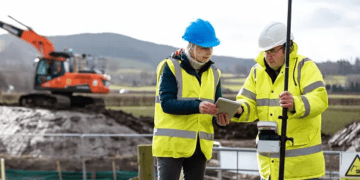Land Reclamation and Environmental Concerns in the Maldives
A recent report has highlighted issues regarding land reclamation projects in the Maldives, focusing on the implications these projects have on local island communities and the environment. According to Human Rights Watch, there are concerns that these projects might not fully comply with the nation’s environmental protection laws. This raises questions about the potential impact on local ecosystems, including increased risks of flooding and other environmental hazards.
Findings of the Report
The 21-page report titled “‘We Still Haven’t Recovered’: Local Communities Harmed by Reclamation Projects in the Maldives,” details how some development projects in areas such as Kulhudhuffushi in the north and the Addu atoll in the south may not have adequately involved local communities in their planning stages. The report suggests that Environmental Impact Assessments (EIAs) and subsequent mitigation measures might not have been fully implemented or monitored. It also highlights concerns over potential effects such as climate change repercussions, loss of biodiversity, coastal erosion, and increased flooding.
Specific Cases and Impacts
One noted example is in Kulhudhuffushi, where approximately 70% of the island’s mangroves were cleared to construct a new airport, significantly impacting the local ecosystem and residents’ livelihoods. This has reportedly led to economic and environmental challenges for the local community.
Maldives’ Stance on Climate Change
Despite the challenges posed domestically, the Maldives has been actively participating in international discussions on climate change, advocating for global action. The nation faces immediate threats from climate change, with most of its islands being less than a meter above sea level, making them vulnerable to shoreline erosion and other related impacts.
Recommendations and Government Response
The report by Human Rights Watch calls for the Maldives government to ensure that development projects, including land reclamation, do not adversely impact the rights and safety of island communities. It recommends that the Maldivian government enforce its environmental protection laws more rigorously, ensure independent oversight by the Environmental Protection Agency, and involve local communities in decision-making processes.
The Maldives government has expressed its commitment to addressing climate change and has sought financial support for adaptation measures. The report suggests that international funders should continue to provide support but also encourage the government to adhere strictly to environmental regulations.
Future Directions
The new administration under President Mohamed Muizzu faces the task of addressing these environmental and community concerns. The approach the government takes could play a crucial role in balancing development needs with environmental conservation and community rights in the Maldives.
Your source for supply chain report news updates: The Supply Chain Report. For international trade insights and tools, head to ADAMftd.com.
#LandReclamation #MaldivesEnvironment #ClimateChangeImpact #HumanRightsWatch #MaldivesDevelopment #EnvironmentalProtection #CoastalErosion #BiodiversityLoss #FloodingRisks #SustainableDevelopment #MangroveConservation #MaldivesEcosystem #EnvironmentalImpactAssessment #IslandCommunities #EnvironmentalOversight #MaldivesClimateAction #PresidentMuizzu #CommunityInvolvement #EnvironmentalLaws #ClimateResilience #SustainableInfrastructure
















